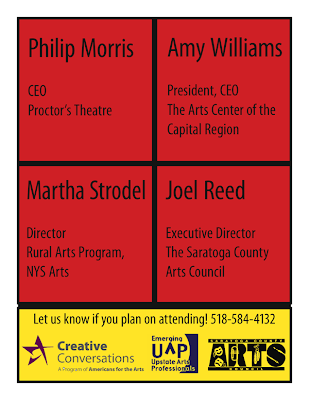Recently, I was asked to give a recommendation or rather a review of my Masters program by a prospective student. The first thing that came to mind was to warn him about the impending doom of repaying school loans, especially the hefty ones that come with a graduate education from a private institution. I have suddenly become aware of the exact amount I will be forced to part with on a monthly basis for the next 10 years, and it is overwhelming to say the least.
I am very satisfied with my job and know that my degree from Pratt was a factor in securing it, but it is hard for me to accept 10 years of debt for a job that doesn't pay very well. Now, it is important to note that my salary is competitive in terms of my experience and region. This highlights the constant dilemma for those in the non-profit sector. Degrees are almost essential, debt is inevitable and unfortunately oftentimes shockingly low pay is as well. I was lucky to be offered a job that allowed me to live above the poverty line, as was not the case for the two positions I had previously been offered.
As for my graduate program itself: the instructors were for the most part highly qualified and knowledgeable about their particular content area. I enjoyed the liberal manner in which my graduate program in Arts and Cultural Management was administered (i.e. no tests, few hard and fast rules of any sort and the ideal that education happened primarily outside the classroom). I have told others that have looked into this program that an education at this school will become whatever you put into it. If you want to coast through your Masters, then you can get a degree from a prestigious institution and likely a decent job out of it. If you are more inclined to work hard and engage in thought provoking conversation, then you will get a lot more out of the program. I was always the dork that managed group assignments, asked questions and sat in the front of the room. I gained critical insight into the current state of the arts in America and graduated feeling equipped to succeed in the field.
During my first few interviews after graduation the validity of my education was c
onfirmed when I was able to face the firing squad of a board, answering their questions on how I could revive their organization. I was interviewing for an Executive Director position at a very, very small arts organization in Central NY. In preparation for the interview I was able to establish the financial health of the organization, identify outreach challenges and speak to possible solutions to a lack of new audience interest. I ended up being offered the job but was unable to accept it due to a realization of saddest salary I've ever heard of for a full time position. A former classmate brought to my attention that small organizations are likely to offer meager salaries in exchange for fancy titles.
During the conversation with a board liaison in which I respectfully declined the position, I questioned her about the future of the organization. How could the board expect to attract an educated, talented, full-time Executive Director with a salary that flirts with poverty?
Many organizations and new graduates face these dilemmas. This predicament begs the question that was raised to me by my friend contemplating a return to higher education, “Should I go back to school for a degree in Arts Administration?” It seems obvious to me that the nonprofit arts sector is moving toward an advanced degree standard for new hires. The concern for those considering this path is whether they will ever be able to live free of educational debts.

I cannot address these concerns entirely reasonably as I am currently suffocated by them and do not have access to a reliable crystal ball of any sort. I can however draw attention to a possible answer that will hopefully, at the very least, provide a bit of hope for the future. FinAid.org, a public service organization and online source for student financial aid information posted a page about Public Service Loan Forgiveness:
The College Cost Reduction and Access Act of 2007 established a new public service loan forgiveness program. This program discharges any remaining debt after 10 years of full-time employment in public service. The borrower must have made 120 payments as part of the Direct Loan program in order to obtain this benefit. Only payments made on or after October 1, 2007 count toward the required 120 monthly payments. (Borrowers may consolidate into Direct Lending in order to qualify for this loan forgiveness program starting July 1, 2008.)
As mentioned, this loan forgiveness has gone into effect! It seems that, if you're planning to stay in the non-profit field for at least ten years full time then there is an way out of the debt! Now the question seems to be, is ten years too long to live with an embarrassing debt to income ratio? For some, the answer may be "no".
I have seen a number of articles about this lately and hope that my fellow non-profit workers are investigate along with me. Ten years of debt is a daunting prospect, but this Public Service Loan Forgiveness program may be the light at the end of this very long and low-income tunnel.
-Adrianna




